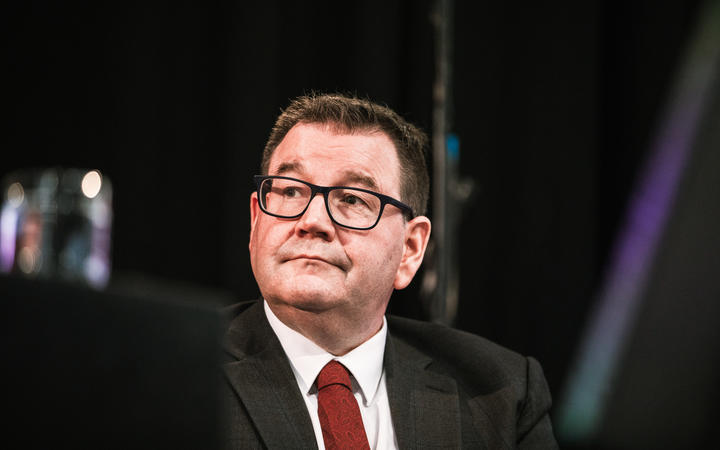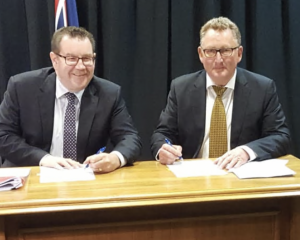
Robertson said he was hoping not to use the word Covid so much this year, but "the pandemic remains ever present".
He said New Zealand was in a "better position than most countries.. But it is still not easy and like you I am well and truly over it".
With inflation nudging 7 percent, Robertson defended the Government's spending levels in 2022.
The Budget has come under attack in recent days for the amount of new spending it includes - it has a $6 billion operating allowance.
Robertson also defended the Government's legacy so far, saying the right "balance" was struck during the pandemic, between inflationary risks and fears of high unemployment.
"There were and are no costless decisions. Doing less would have seen unemployment grow, or put people's health at risk," Robertson said.
Robertson also said the Government's books had outperformed forecasts - the OBEGAL (operating balance before gains and losses deficit) was $4.1 billion lower than forecast in December.
The Budget has been billed as a Health and Climate Change budget - and Robertson defended those decisions against fears they would fan the flames of inflation.
"If we decided against reforming our health system, we would not see lower petrol prices; we would just have both high petrol prices and a health system that was not set up to meet our needs," Robertson said.
He said the Government would not dump investment because of the current inflation spike. However, at the same time, he said the Government was mindful of the fact the economy was experiencing capacity constraints - meaning it could not always deliver that investment in a non-inflationary way.
Robertson said the new fiscal rules were a response to lessons learned from Covid-19.
The rules mean that the Government will run surpluses after 2025 (meaning current spending will be paid from current revenue), and the Government would not let net Crown debt rise above 30 percent of GDP. Essentially, this means the Government will fully fund its day-to-day spending each year, while borrowing for longer term investment.
On climate, Robertson said the Budget would help businesses make the transition towards low-emissions technologies. He said the Government would work with sectors that had emissions that were particularly difficult to abate to support them make the transition.
Robertson linked funding for the green transition to the current spike in inflation. He said a green transition would help with inflation by making New Zealand less vulnerable to instability in the price of fossil fuels.
He hinted the Emissions Reduction Plan would help decarbonise private vehicles.
"Increasing the uptake of low-emissions vehicles will help us meet our emissions budget.
"It will also soften the blow of households the next time we see a global energy crisis," Robertson said.












